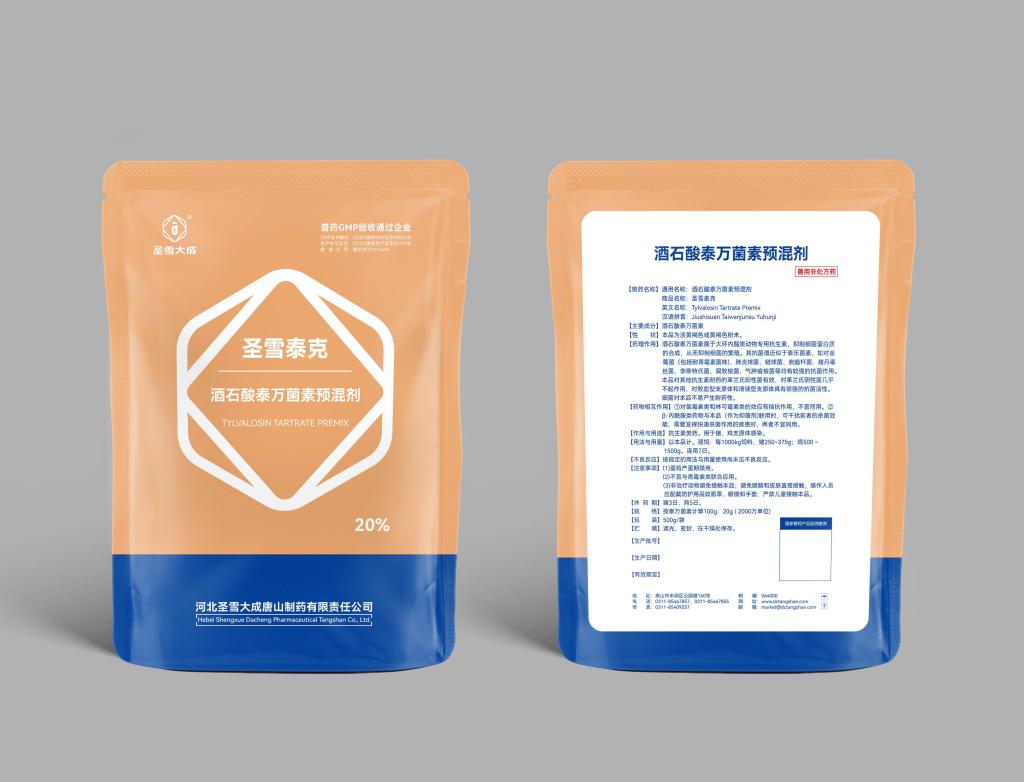Tel:+8618231198596

News
 CONTACT
CONTACT
 CONTACT
CONTACT
- Linkman:Linda Yao
- Tel: +8618231198596
- Email:linda.yao@dcpharma.cn
- Linkman:CHARLES.WANG
- Department:Overseas
- Tel: 0086 0311-85537378 0086 0311-85539701
News
Current Position:
Home >
News
>Tylvalosin tartrate premix helps in maintaining animal comfort and well-being.
Tylvalosin tartrate premix helps in maintaining animal comfort and well-being.
TIME:2024-09-06
Understanding Tylvalosin Tartrate
Tylvalosin tartrate is a semi-synthetic macrolide antibiotic that belongs to the same family as tylosin. It is commonly used in veterinary medicine to treat and prevent various bacterial infections in livestock, including swine and cattle. The drug is effective against a wide range of Gram-positive bacteria and some Gram-negative bacteria, making it a versatile choice for managing animal health issues.
How Tylvalosin Tartrate Premix Works
Tylvalosin tartrate acts by inhibiting protein synthesis in susceptible bacteria, thereby preventing the spread of infection and allowing the animal's immune system to combat the disease more effectively. When administered as a premix, the antibiotic is typically mixed with feed or water, ensuring consistent dosing and easy administration.
Benefits of Tylvalosin Tartrate Premix
Disease Prevention and Treatment
One of the primary benefits of using tylvalosin tartrate premix is its effectiveness in preventing and treating bacterial infections. By controlling diseases such as swine dysentery, porcine respiratory disease complex (PRDC), and other infections, the antibiotic helps maintain the health of the herd, reducing the stress and discomfort associated with illness.
Improved Growth Performance
Healthy animals tend to perform better in terms of growth and productivity. By keeping the herd free from disease, tylvalosin tartrate premix can contribute to improved feed efficiency and faster growth rates. This not only enhances the welfare of the animals but also increases the profitability of the farm operation.
Stress Reduction
Disease and illness can cause significant stress in animals, leading to behavioral changes and decreased appetite. By preventing and treating infections, tylvalosin tartrate helps maintain a comfortable environment for the animals, reducing stress levels and promoting a more relaxed state, which is conducive to their overall well-being.
Compliance with Ethical Standards
Using antibiotics responsibly is crucial in maintaining the ethical standards of animal husbandry. Tylvalosin tartrate, when used appropriately, ensures that animals receive necessary medical treatment without unnecessary exposure to antibiotics. This approach aligns with the principles of animal welfare and responsible stewardship.
Proper Usage and Considerations
While tylvalosin tartrate premix offers numerous benefits, its use should always be guided by veterinary advice. Proper dosage, duration of treatment, and withdrawal periods are critical to ensuring the safety and efficacy of the antibiotic. Overuse or misuse of antibiotics can lead to the development of antibiotic-resistant bacteria, which poses a significant threat to both animal and human health.
Additionally, it is essential to monitor the health of the animals regularly and to follow all guidelines provided by the manufacturer and regulatory bodies. This includes adhering to recommended withdrawal times before slaughter to avoid residue issues and ensuring that the antibiotic is used only when necessary.
Conclusion
Tylvalosin tartrate premix plays a vital role in supporting the health, comfort, and well-being of livestock. By preventing and treating bacterial infections, it helps maintain a healthy herd, improves growth performance, reduces stress, and upholds ethical standards in animal care. Responsible use of this antibiotic, guided by veterinary expertise, can significantly contribute to the overall welfare of animals and the sustainability of agricultural practices. As with any antibiotic, careful management and adherence to best practices are essential to maximizing its benefits while minimizing potential risks.
- Tel:+8618231198596
- Whatsapp:18231198596
- Chat With Skype







